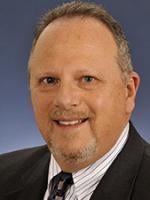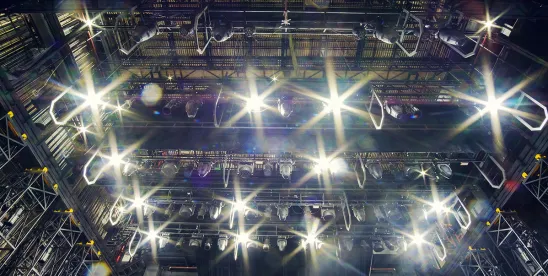The summer concert season is almost here. As the weather warms, artists and fans alike are gearing up for highly anticipated tours, like the Oasis reunion, as well as annual festivals, such as Lollapalooza in Chicago, IL, both of which sold out in under an hour. Undoubtedly, John Doe, bootleg merchandiser, is gearing up too, ready to sell counterfeit summer tour t-shirts outside venues. A recent case out of the Central District of California suggests that if artists want to crack down on John Doe’s sales this summer, it may be wise to wait until the tour is underway and the knock-off sales have begun.
On March 24, 2025, rock band AC/DC filed a complaint and ex parte application for a temporary restraining order (“TRO”), seeking nationwide relief against anticipated but yet-to-be-identified Doe defendants. See Leidseplein Presse, B.V. v. Various John Does, Jane Does, and XYZ Companies, No. 2:25-cv-02585 (C.D. Cal. Filed 03/24/2025). The band sought to seize counterfeit merchandise at the opening date of its upcoming tour and to restrain bootleggers from engaging in further sales across the country. However, on April 4, the federal district court in Los Angeles denied AC/DC’s TRO application on the basis that any injury to plaintiff was hypothetical at this point as the complaint and TRO application did not identify particular individuals or repeat offenders, even though the identities of bootleggers are almost never known, and difficult to ascertain.
To counteract the proclivity of bootlegging, touring artists and promoters employ a creative combination of Federal Rule of Civil Procedure 65 and the Trademark Counterfeiting Act of 1984 to seize and restrain ongoing sales of counterfeit merchandise. This mechanism combines five unusual, often disfavored, litigation tactics: 1) emergency proceedings; 2) ex parte seizure orders; 3) seizure without deprivation hearings; 4) Doe defendants; and 5) nationwide restraining orders. Courts are often uncomfortable with the mechanism, consistently expressing due process concerns, even when granting such orders.
Touring artists and promoters see this strategy as one of the only ways to effectively stem the flood of illegal, bootleg merchandise by sellers who are not easily identifiable and who may not be susceptible to normal service of process and litigation practices. However, with increasing judicial skepticism of the practice, artists are put in a precarious position, especially when faced with lost revenue in the early legs of tours, before hard evidence of actual damages can be shown to a court.
The court declined to issue the TRO AC/DC requested because, in its view, while likely plausible, the potential abuse was not enough to persuade the court to grant the application as it read the complaint as making conclusory allegations based on past experience; i.e., that bootleggers would present themselves at the opening date of the tour. The court expressed concerns about granting nationwide seizure and restraining orders, echoing the due process concerns of other courts around the country.
By contrast, jam band Phish adopted a different strategy with a similar goal, making a motion in the District Court of Massachusetts in summer 2024. See Phish, Inc. v. Various John Does, Jane Does, and ABC Companies, No. 1:24-cv-11749 (D. Mass. Filed 07/08/2024). Phish succeeded in obtaining both a seizure order and a restraining order for the remainder of its tour, stretching from New York to Colorado. Phish made its motion after the tour had begun, once bootleggers were present and the injury was concrete and ongoing. Further, Phish specifically identified the remaining tour dates and cities in which it sought a restraining order, limiting the often-sweeping nature of the nationwide restraining order requests, and apparently alleviating courts’ common discomfort with the perceived lack of due process.
For artists and promoters embarking on summer tours who want to shut down merchandisers of counterfeit concert memorabilia, specificity and certainty are key, even if the offenders are unidentified John Does. The recent court decisions suggest that knowing an injury might occur—even if almost certain—may not be enough to persuade some courts of the need for immediate, temporary relief. Artists and promoters should be specific in the scope of their request, limiting the restraining order to the remaining dates and cities on the tour schedule. By working with courts’ sympathies for mark owners, while simultaneously alleviating courts’ common procedural and due process concerns, artists may be able to rid themselves of bootleggers this summer, and fans can be sure to be offered only the genuine article.





 />i
/>i

